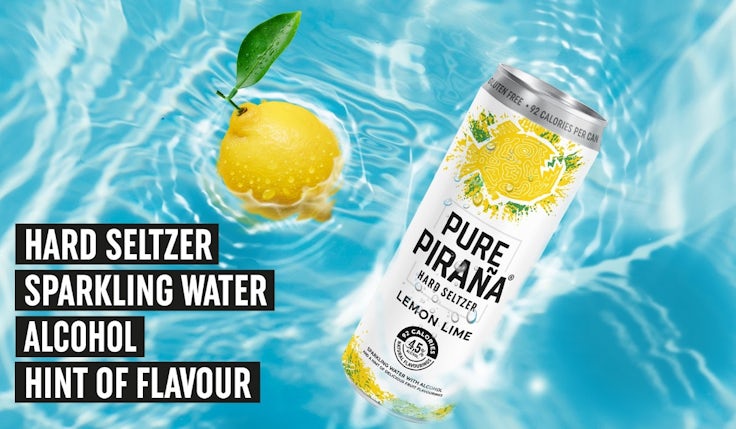Malibu on why consistency drives growth
Malibu saw “exceptional growth” in the last 12 months and “rejuvenated” interest in the brand thanks to product innovation and its long-term marketing strategy.
 Malibu is on a mission to become a truly global brand following what it describes as “exceptional” growth under lockdown, which it attributes to its “consistent” approach to marketing and capitalising on key consumer trends.
Malibu is on a mission to become a truly global brand following what it describes as “exceptional” growth under lockdown, which it attributes to its “consistent” approach to marketing and capitalising on key consumer trends.
“The words consistency and distinctiveness are sometimes forgotten these days when it comes to marketing,” Malibu’s marketing vice-president, Johan Radojewski, tells Marketing Week.
“For the past five years, we’ve been really trying to hammer our summer strategy home. What we started seeing during the last year before Covid was that focus really starting to pay off.”
Part of the strategy was to use influencers to create “very relevant content” across the world, which then tapped into consumer trends among its core Gen Z and millennial audience.
“We have in the last five years gone all-in to influencer marketing,” adds Radojewski. While campaigns with heavy influencer reliance might seem like a “blast from the past” or a bit dated to other marketers, he says it’s a strategy that works for connecting to Malibu’s social media versed customers.
The marketing playbook for this brand is so clear; we are set up for conquering new markets.
Johan Radojewski, Malibu
But this strategy was completely “turned upside down” when the pandemic closed-off economies across the globe.
A key element of the activity was the ‘Malibu Games’, an event it launched in 2018, during which celebrities and influencers from multiple markets compete against each other in water fights and dance-offs, in exotic locations such as the Dominican Republic.
But when lockdowns were enforced around the world, the Malibu marketing team convened for 48 hours to come up with a “nicely timed pivot” to the Coconut Challenge.
Influencers instead competed through “TikTok style” social challenges such as dance-offs and encouraged the audience to post their own videos. Influencers generated content within 24 hours, which Radojewski says aided the brand in being “agile and flexible” during a turbulent 2020. He notes the simplicity of the strategy also helped it succeed.
“[Influencer marketing] has helped us activate the brand in many markets because the whole communications platform that we’ve had in the past, both with Malibu Games and then the Coconut Challenge last year, was built on the same idea,” adds Radojewski.
He says using influencers was particularly useful during the pandemic when it wasn’t physically possible to be in certain markets.
“That merger of our global platform and local amplification really paid off for us. It also made us much more fast-paced, because if you’re more TV or big advertising campaign driven, you have long lead times.
“But being social and influencer first, you can turn that brief around in 24 hours, and have new content out the day after or less. I think that helped us to be very flexible and agile,” says Radojewski.
‘Rejuvenating’ the brand
Its a strategy he believes is paying off, with Malibu posting “double-digit” growth across most key markets in 2020.
Radojewski also credits jumping on key trends such as ready-to-drink and low alcohol in “rejuvenating” interest in the brand.
“There was a lot of successful innovations coming in at the time [in the last five years] driving [growth], as well as what we did two years ago to really pivot into Gen Z learnings in terms of their new drinking behaviours,” says Radojewski.
He says younger drinkers prefer “lighter drinking” products with lower alcohol levels and the convenience of ready-to-drink (RTD) cans.
The fact consumers tend to opt for more recognisable and premium brands on supermarket shelves suited the “off-trade driven” brand and further helped Malibu’s growth during the pandemic when bars were closed.
 As part of its drive into the RTD category, the brand launched Malibu Splash in February last year, which the company has sold almost a million cases of to date.
As part of its drive into the RTD category, the brand launched Malibu Splash in February last year, which the company has sold almost a million cases of to date.
“[Hard seltzer brands like] The White Claws and alike are really exploding, especially the US and are now coming to the UK as well. We launched Malibu Splash last spring as our answer to that consumer trend,” says Radojewski.
‘We want to lead’: Heineken jumps on emerging hard seltzer trend
Strategy for growth
Although Malibu is recognised internationally, to be a truly global brand it must increase its presence in more markets, says Radojewski.
“The way I like to think of Malibu today is that we are an international brand. In the last 12 months and with the momentum we have, we will turn it into a global brand. We have ambitions to open up in markets.
“I think that is a really interesting journey I’ve set for myself and for the team – and that is where we take the brand to globalise it. The marketing playbook for this brand is so clear; we are set up for conquering new markets,” says Radojewski.
Despite its global ambitions, he is adamant Malibu must keep its “small brand mindset”, believing this will continue providing a “competitive advantage”.






